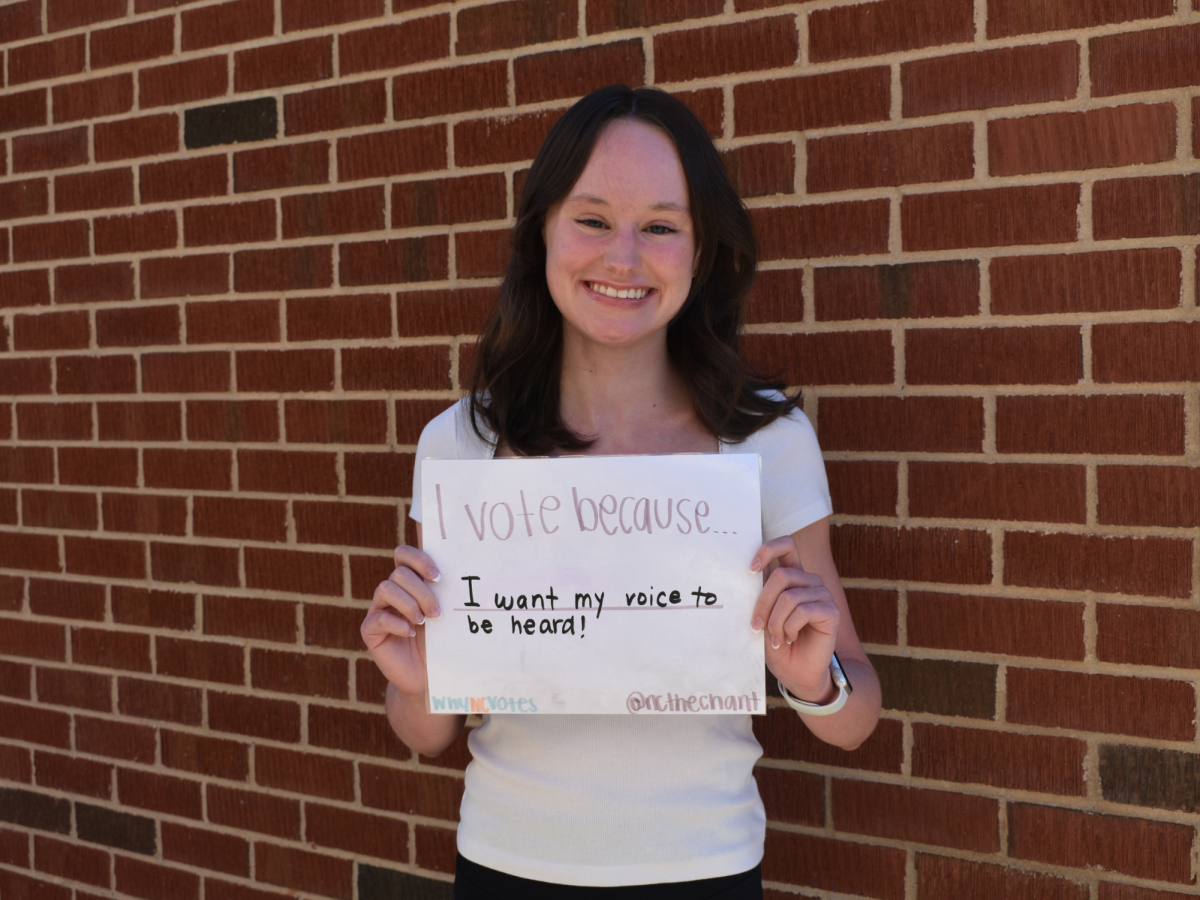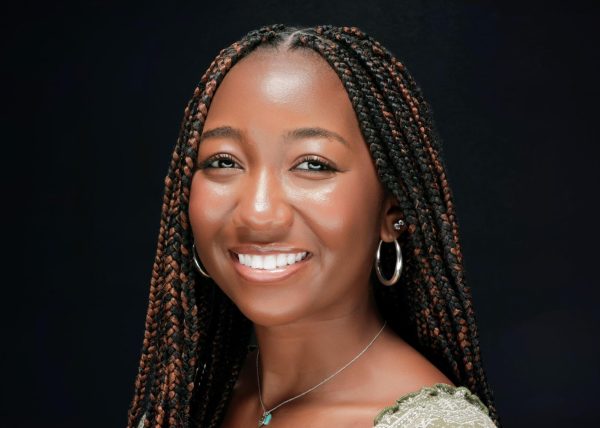After high school, young adults face a series of personal and professional decisions that stand to alter the course of their budding lives. Democratic actions such as voting represent a significant portion of those new choices; whether early, on Election Day or through an absentee ballot, college-aged students can leave their civic mark in diverse ways. At NC, students hold access to a series of courses and clubs that aim to educate them on democracy’s importance and continue to utilize those lessons throughout their lives. As November 5 draws near, NC’s accomplished alumni from the classes of 2022, 2023 and 2024 share their motivations for voting and their desire to see other young people take part in representative government.
The ten alumni interviewed for this edition of “Why NC Votes” answered three questions: “How did your time at NC inform your decisions about voting or democracy?”, “Why do you vote? Why do you think it is important?” and “What could younger NC students do to educate themselves about voting or democracy and why?”. Through a reflection of their past and with a look towards the future, these NC graduates illustrate their passion for civic action.
Question One: How did your time at NC inform your decisions about voting or democracy?
This question intends to discover the ways in which NC’s curriculum, staff or extracurriculars have informed the civic actions of alumni. Eden Tesfaye (Class of 2023), Erinn Gardner (Class of 2023) and Isabel Baxter (Class of 2024) share their testimonials as to how the halls of NC shaped them for the array of civic opportunities in front of them. 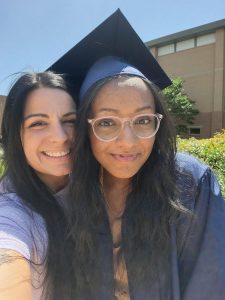
“Younger students should definitely try to avoid falling victim to using social media as their sole political source. While important information is shared through sites like Instagram and TikTok, there can also be misinformation, which we have seen an unprecedented amount of in this election. It’s important to research and verify things that you hear from anywhere, even from the people around you. For example, I remember in my economics and government class, my teacher Mrs. [Tara] Sisino really emphasized the importance of voting not just in presidential elections, but in midterms and local elections as well. She was also great at teaching how the elements of our government and how our vote has a direct impact,” Tesfaye said.
 “Although it may seem minimal, I think that voting in student elections is critical because it teaches students at a young age [about voting]. You know we’re voting for someone who will not only affect your day-to-day life but the lives of your peers. Are you going to vote for someone that does nothing or are you going to vote for someone that uses their power for good? The first person I think of is Bianca [Orfila-Molinet]. She was a grade below me and was the junior vice president when I was there when I was a senior. She used her power to educate students and inform them about policies at school, and spread awareness about social, political, and economic issues. When I remember that, I think that’s what I would want in a president; someone who makes change for the better. Her advocacy informed me of what I would lo
“Although it may seem minimal, I think that voting in student elections is critical because it teaches students at a young age [about voting]. You know we’re voting for someone who will not only affect your day-to-day life but the lives of your peers. Are you going to vote for someone that does nothing or are you going to vote for someone that uses their power for good? The first person I think of is Bianca [Orfila-Molinet]. She was a grade below me and was the junior vice president when I was there when I was a senior. She used her power to educate students and inform them about policies at school, and spread awareness about social, political, and economic issues. When I remember that, I think that’s what I would want in a president; someone who makes change for the better. Her advocacy informed me of what I would lo

ok for in a potential leader of this country when I turned 18. With examples like this, that helps encourage students to get in that mindset of advocating for themselves because we are the future,” Gardner said.
“Going through the [International Studies] magnet program and having to take classes like Advanced Placement (AP) Comparative Government, AP United States History and even Honors Government freshman year gave me a very honest and worldly view on government and politics which helped shape my view on the importance of political efficacy, especially in a democracy. Younger NC students have more resources than they even know about voting. I think of the most important classes I took at NC was AP U.S. Gov[ernment and Politics]; even though the class was brutal, I felt very educated about my government and stressed the importance of voting,” Baxter said.
Question Two: Why do you vote? Why do you think it is important?
In light of the upcoming 2024 presidential election, several young people look forward to casting their very first ballot. The anticipation and excitement that may stir in the 18+-year-olds in the U.S. before November 5 echo in the answers presented by Sheila Ganley (Class of 2022), Eladia Scott (Class of 2024) and Lily Trottier (Class of 2024). When asked why they had decided to vote this year, these three women provided a personable touch to their perspectives. 
“I vote because I value the democratic system we have in place in the U.S. and believe that preserving our elections is important. Throughout time, I’ve become someone who is very opinionated politically, and in order to see the changes and policies I want in the government, I feel the need to participate in this way. This also ties into why I think voting is important. We cannot expect to see change and policy reflecting public opinion without going to the polls. The U.S. has one of the lowest voter turnouts as a consolidated democracy, but students and young adults need to realize that voting is one of the only ways to see real change,” Ganley said.
“I vote because I feel that as African American women, we are allowed to have a say in our democracy, one that we fought so hard for, and who we decide is our leader. And especially during a time when a lot of things are being tested, and challenges are being faced for us, our women’s rights, and various rights, I feel like it is my duty to make a choice on how the future of our country should be run,” Scott said.
“I vote because it’s my responsibility and privilege. So many people around the world don’t even have the chance to vote and are violently oppressed for speaking up for themselves. I don’t think many Americans realize how lucky they are to have a chance to participate in their government and choose who runs it. Even though the news only shows the radical ends of both sides, they are vastly outnumbered by those who lie somewhere in the middle. There will come a day when we all have to pay taxes, find a job, support our families and more. If I want to see change in my life then I need to make the effort to decide to try the change. How can you expect something to change if you don’t do anything about it? I vote not only to support myself but to support my family, friends, and country. Voting is such a privilege that should not be wasted by laziness or turning a blind eye. You can’t complain about problems if you are not working to solve them. That’s why I vote,” Trottier said. 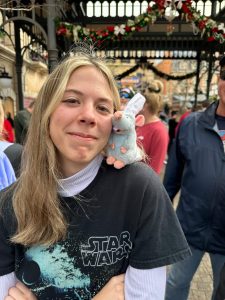
Question Three: What could younger NC students do to educate themselves about voting or democracy and why?
For the final question, four of NC’s alumni reflected upon their underclassmen years to create empathetic answers. With their hearts on their sleeves, Ivan Mendoza (Class of 2024), Alex Currier (Class of 2023), Anabel Gordon (Class of 2024) and Orfila-Molinet (Class of 2024) urged current NC students to seek out knowledge on a crucial component of the U.S. From searching on social media to verbally asking their peers, the alumni provide an array of ways as to how students can become familiarized with voting or democracy.
“It is important to educate yourself through talking with other people and having a healthy discourse about politics about what it means to be what it means. In this country, we don’t have that kind of discourse anymore, especially between our two main presidential candidates, but there’s discourse that could occur without arguing because America is supposed to be a country of unity. The U.S. is a country of unity, and it’s important to educate yourself too. Learn about both sides to figure out what you want individually. It doesn’t matter what your friends want you to think because you need to do your own research. Educate yourself through debates, educate yourself through watching the news. Pay attention in class if you have civic or ethics class or AP Government. It’s very, very, very important to educate yourself because there’s going to be a next generation that is not going to be able to vote. You must vote for policies that better align with what you believe will make you and your country better, and your American friends and colleagues better,” Mendoza said. 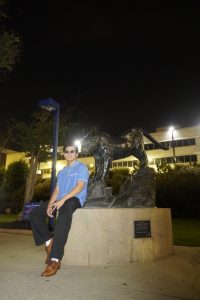
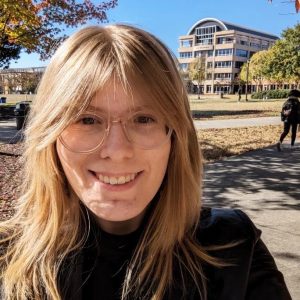 “Voting can seem super overwhelming to first-time voters, whether high-school-aged or older. One of the great things about the 21st century is access to technology; the government spends thousands to create web pages dedicated to educating voters about how to register and cast a ballot if they are permitted to do so. The “GA My Voter Page” is a magnificent resource. Also, if you want a person to help, I’d encourage people to talk to the elections office with any questions they might have. The people there are hired to help with questions and concerns. In terms of democracy, it’s a lot more abstract of a concept. It’s not always everyone’s favorite thing to crack open a political science textbook, but if anyone has an interest in it I would highly recommend doing so. I’m currently in a course using the book, “Democratization” by Christian Haerpfer (et. al.). It’s a great text that talks in depth about different theories of democracy, democratization, and Democratic principles,” Currier said.
“Voting can seem super overwhelming to first-time voters, whether high-school-aged or older. One of the great things about the 21st century is access to technology; the government spends thousands to create web pages dedicated to educating voters about how to register and cast a ballot if they are permitted to do so. The “GA My Voter Page” is a magnificent resource. Also, if you want a person to help, I’d encourage people to talk to the elections office with any questions they might have. The people there are hired to help with questions and concerns. In terms of democracy, it’s a lot more abstract of a concept. It’s not always everyone’s favorite thing to crack open a political science textbook, but if anyone has an interest in it I would highly recommend doing so. I’m currently in a course using the book, “Democratization” by Christian Haerpfer (et. al.). It’s a great text that talks in depth about different theories of democracy, democratization, and Democratic principles,” Currier said.
“I highly encourage younger NC students to download SmartNews or other unbiased news sources to expand their political education, in order to later on cast educated votes. By forming the foundation of their political stances using unbiased sources, by the next election students can confidently cast their votes. In a growing country with 333.3 million people, it can be profoundly difficult to ensure one’s voice is heard. Through voting we gain a way to use our voice that can sometimes feel drowned out,” Gordon said. 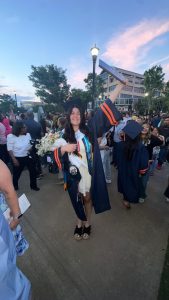
 “I’m always about educating young voters and even non-voters who want to learn more about government. I think it’s essential to know what you’re supporting and how it can affect you personally in the long run. My advice to those who wish to be more educated but don’t know where to start is to simply look at the issues on the ballot. Research candidates, even with a quick Google search, and read over the policies they support. I don’t just mean look up the presidential candidates, I mean local elected positions as well. I also think getting involved in organizations that promote voter turnout is a great way to learn how our system works and take advantage of all the power we have in a democracy,” Orfila-Molinet said.
“I’m always about educating young voters and even non-voters who want to learn more about government. I think it’s essential to know what you’re supporting and how it can affect you personally in the long run. My advice to those who wish to be more educated but don’t know where to start is to simply look at the issues on the ballot. Research candidates, even with a quick Google search, and read over the policies they support. I don’t just mean look up the presidential candidates, I mean local elected positions as well. I also think getting involved in organizations that promote voter turnout is a great way to learn how our system works and take advantage of all the power we have in a democracy,” Orfila-Molinet said.
Although this article only highlights ten of NC’s former students, this group represents hope for Generation Z’s democratic action. By using their sources, information gained at NC and their life experiences, these graduates can execute informed votes at the polls.




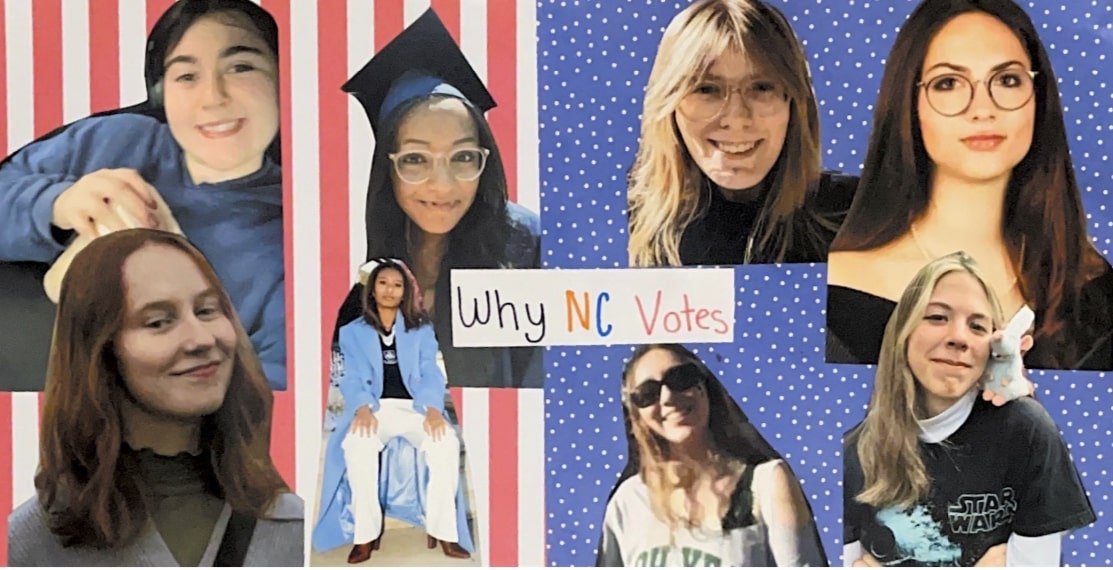
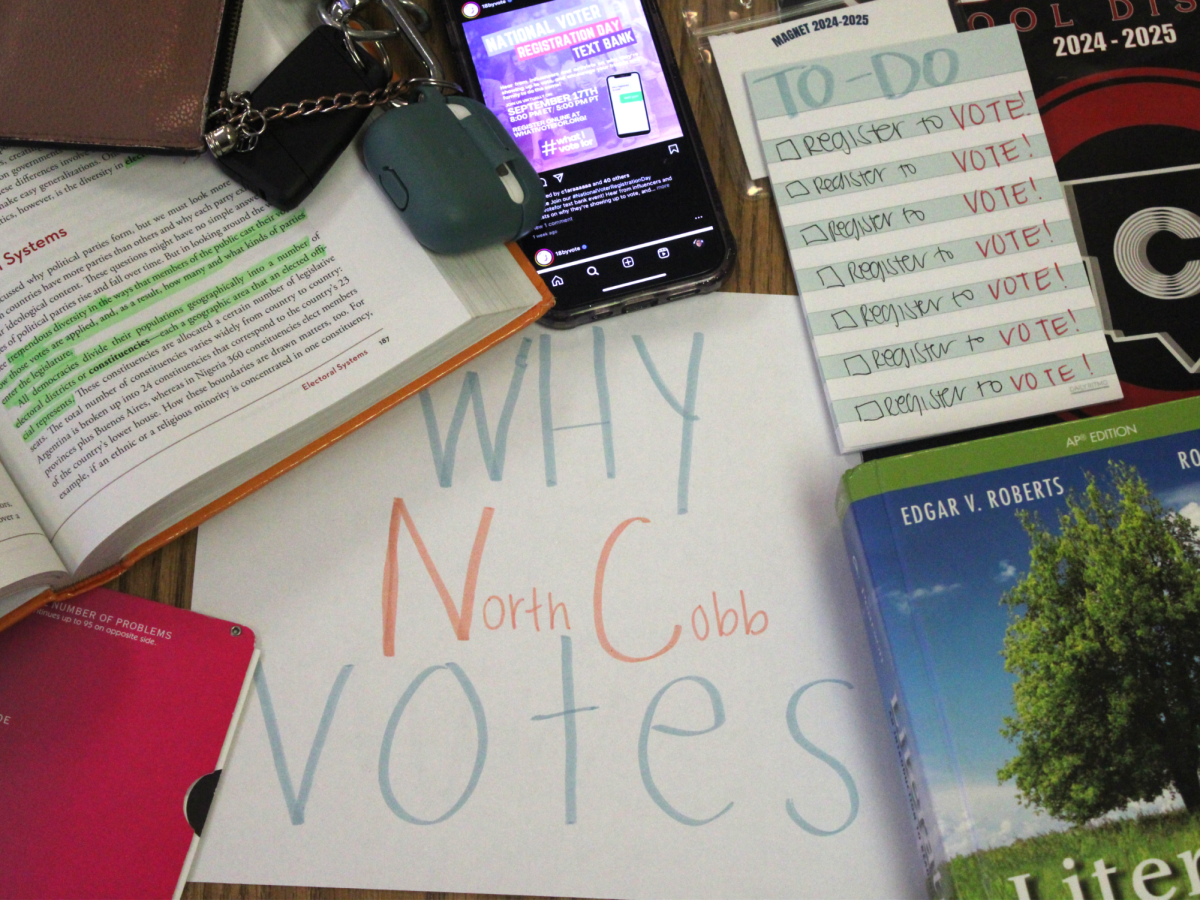
![During an election season, several Americans recall the extensive history — and conflict — with how voting has operated. The vast and often frustrating methods of voting used in decades past can allow modern citizens to appreciate the current methods in place, while also remembering the fond memories that occurred on the civic struggle bus. For Advanced Placement (AP) Macroeconomics and honors government and economics teacher Dr. Pamela Roach, her knowledge and lived experiences of different voting eras allow her to cherish her civic duty, and teach her students to do the same. Although it may not be the most efficacious, I think voting is one act of political participation. You [can] write and email your elected representative, whether it's at the local state or national level. [That] has a place in democracy because how else will those elected officials know what we, the people, want? ‘We the people’ is a powerful phrase, and no one takes the time to actually go and let their voice be heard by these individuals. So yeah, your voice matters,” Roach said.](https://nchschant.com/wp-content/uploads/2024/11/roach-photo-1-1200x900.png)
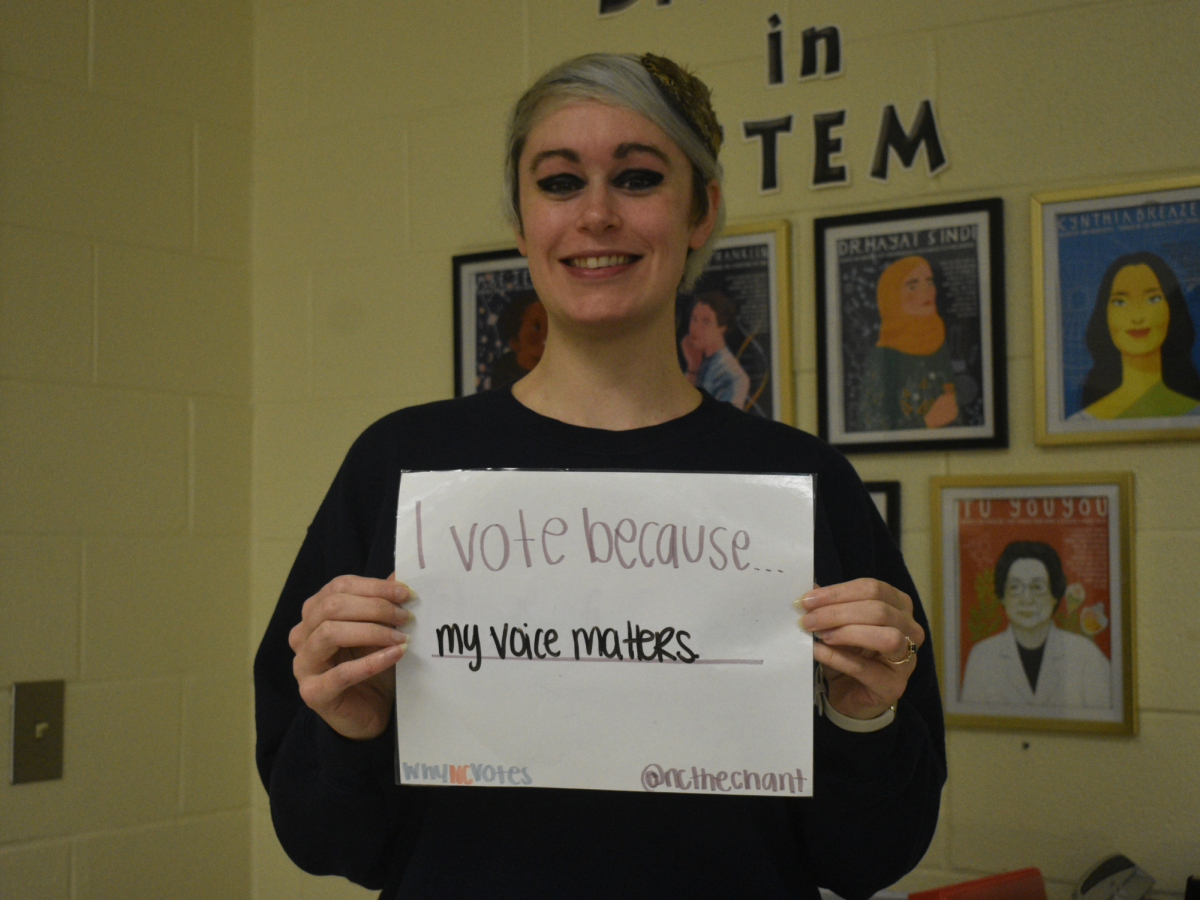
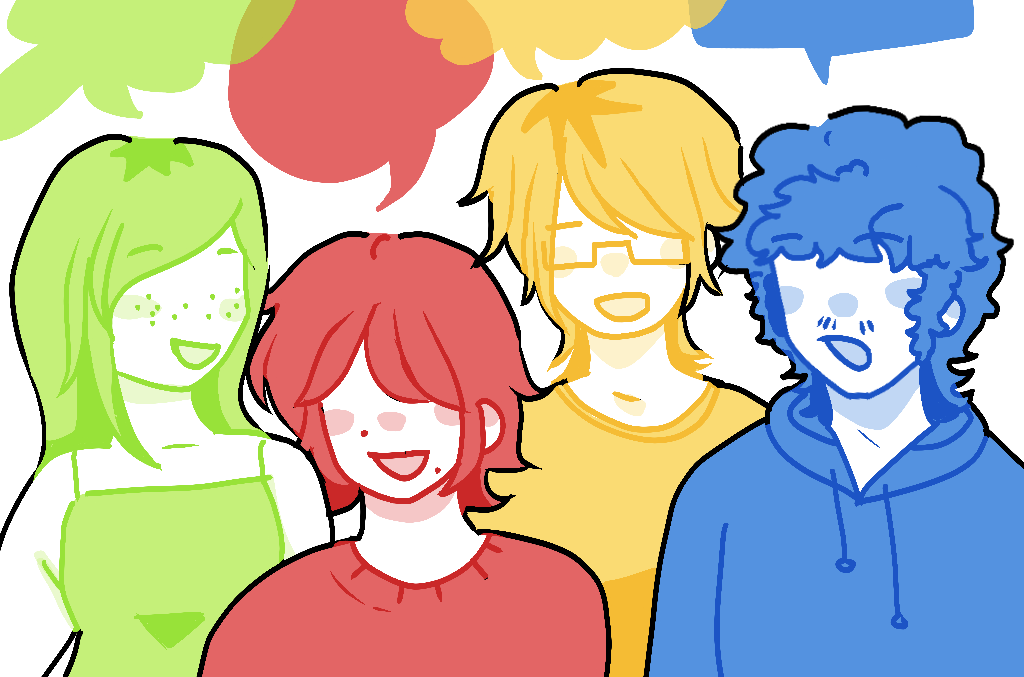
![For several government and politics educators around the U.S., an election season represents a key time to educate their students through tangible examples. In the case of Advanced Placement (AP) Comparative Government teacher Carolyn Galloway, this opportunity not only excites her but fervently aligns with her zeal for democratic processes. Through her personal and professional experiences with voting and government, Galloway encourages her students — both those who can vote and those who can not — to enter into elections informed about any topics on the ballot. “[Voting] impacts your government, especially on the local level, because not a lot of people vote on the local level. Who you vote for, how you vote, and whether or not you understand what you are voting for impact everything from who your tax commissioner is, to who your president is, to what ballot measures pass. All of those impact the way the government works for you,” Galloway said.](https://nchschant.com/wp-content/uploads/2024/10/galloway-photo-2-1200x900.png)
